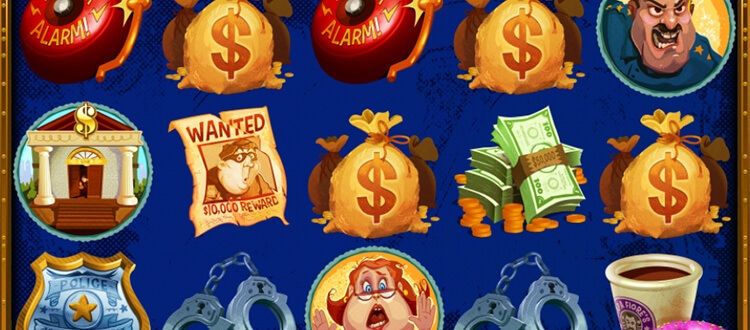Cash Bandits 2 Australia
Australian banknotes are a legal tender throughout Australia (this is provided in section 36(1) of the Reserve Bank Act
1959).
A payment of coins is a legal tender throughout Australia if it is made in Australian coins, but this is subject to some restrictions about how much can be paid in coin. According to the Currency Act 1965 (section 16) coins are legal tender for payment of amounts which are limited as follows:
- not exceeding 20c if 1c and/or 2c coins are offered (these coins have been withdrawn from circulation, but are still legal tender);
- not exceeding $5 if any combination of 5c, 10c, 20c and 50c coins are offered; and
- not exceeding 10 times the face value of the coin if $1 or $2 coins are offered.
For example, if someone wants to pay a merchant with five cent coins, they can only pay up to $5 worth of five cent coins and any more than that will not be considered legal tender.
The Reserve Bank of Australia does not have legal responsibility for Australian coins. That responsibility belongs to the Royal Australian Mint.
July 23rd: New RTG Pokie - Cash Bandits 3. RTG have taken their amazing Cash Bandits 2 up a notch! In this new version you can win up to 390 spins with all win multiplied by x23! Give this INSANE new pokie a try at Rich Palms Casino -June 28th: New RTG Pokie - Wild Hog Luau. Cash Bandits 2 is a very popular slot from Realtime Gaming. It was released in 2017 and has since been on every top 10 list of most played slots at online casinos with RTG software. This five reel, 25 pay line slot is themed around the good old cops and robbers theme, where you take the role of the bandit that is trying to steal from the vaults. Ban on cash payments above $10,000 under proposed law. You used to be able to pay for anything with legal tender. But a new cash law is proposed in Australia which could lead to massive fines.
Transactions In Australian Currency
Every sale, transaction or dealing relating to money, or involving the payment of, or a liability to pay, money in Australia is to be done in Australian currency unless it is done, or the parties to the sale, transaction or dealing agree that it will be done, in the currency of another country.
However although transactions are to be in Australian currency unless otherwise agreed or specified, and Australian currency has legal tender status, Australian banknotes and coins do not necessarily have to be used in transactions and refusal to accept payment in legal tender banknotes and coins is not unlawful.
Commercial Terms
It appears that a provider of goods or services is at liberty to set the commercial terms upon which payment will take place before the ‘contract’ for supply of the goods or services is entered into. For example, some vending machines, parking meters and road toll collection points indicate by signs that they will not accept low denomination coins. Some road toll collection points indicate that they will not accept any cash at all. If a provider of goods or services specifies other means of payment prior to the contract, then there is usually no obligation for legal tender to be accepted as payment.
However, refusal to accept legal tender in payment of an existing debt, where no other means of payment/settlement has been specified in advance, conceivably could have consequences in legal proceedings; for example, the creditor may be unable to enforce payment in any other form.
These general comments about legal tender are offered only as a guide and should not be taken as legal advice. People who need clarification on these matters should obtain appropriate legal advice.

With the Reserve Bank of Australia likely to cut interest rates in 2019, quantitative easing could relieve financial pressure....

With the Reserve Bank of Australia likely to cut interest rates in 2019, quantitative easing could relieve financial pressure.
This new law would put an end to cash payments over $10,000.Source:istock
People could be jailed for two years and fined $25,200 just for using more than $10,000 in cash in one transaction under a new bill being put to the Australian Parliament.
An exposure draft of the legislation, called the Currency (Restrictions on the Use of Cash) Bill 2019, was quietly introduced by Treasurer Josh Frydenberg last month.
Under the proposed law, all cash transactions between businesses and individuals would be limited to $10,000, and any amount over this would be considered criminal.
The proposed changes were first announced in the 2018-19 budget.
The Federal Government’s Black Economy Taskforce recommended the changes in its final report, claiming the measure would help reduce crimes like money laundering and tax evasion.
“This ensures that entities cannot make large payments in cash so as to avoid creating records of the payment and facilitating their participation in the black economy and undertaking related illicit activities,” the draft bill reads.
Anyone who goes over the $10,000 cash limit could be put in jail.Source:Supplied
If passed, the law would come into effect on January 1, 2020 and would apply to all cash payments made to businesses with an ABN.
The penalties, jail time and fine would apply to both the individual and the business part of the transaction.
There are a couple of exemptions to the cash ban.
The $10,000 cash limit would not apply to individual-to-individual transactions, such as the private sale of a second-hand car.
The limit also wouldn’t apply when depositing or withdrawing money from a bank.
However, not everyone is in support of the proposed law, with many groups claiming it would just give the banks even more control over people’s money.
One Nation has already spoken out against the bill, with Senator Pauline Hanson saying the Government is trying to “manipulate” everyday Australians.

“Effectively, if you are a person who keeps cash and uses it to buy a new small car, for example, you will face the real threat of two years in jail and a fine that would likely exceed the value of the vehicle,” Ms Hanson wrote on Facebook.
Pauline Hanson’s One Nation party has said they will oppose the bill. Picture: Kym SmithSource:News Corp Australia
“The Government claims the legislation is to combat the ‘Black Economy’, but the truth is, it’s legislation the Government hopes will stimulate the Australian economy.”
She branded the bill a “social experiment” that would try and use Australians’ money to correct the market.
“Flushing ‘Mattress Money’ out of the shadows and back into bank accounts will leave deposits vulnerable to negative interest rates, prompting those with savings to spend the cash on investments or consumption items,” she said.
One Nation Senator Malcolm Roberts backed up this stance, saying cash is “legal tender” and Australians should be allowed to use it as they please.
In a submission to the draft bill, major accounting body CPA Australia called for the legislation to be withdrawn.
Cash Bandits 2 Australia
Head of CPA Australia, Dr Gary Pflugrath, agreed there needed to be a crackdown on the black economy but said linking criminal activity to all large cash transactions was “a step too far”.

There are concerns the legislation will just give more power to the major banks. Picture: AAPSource:AAP
Cash Bandits Free
“This legislation is attempting to deal with a symptom, not the cause, of the black economy. While the use of cash in a large transaction may be an indicator of risk, it does not prove by itself that the behaviour is criminal,” Dr Pflugrath said.
Cash Bandit Slots

Cash Bandits 2 Free Slots
“The presumption that only tax evaders, money launderers and criminals use cash, and the mindset that these new offences are required to address criminality, has resulted in a proposed bill and instrument that run counter to well-established criminal law principles and have the potential to affect many Australians.
“The focus on criminalising certain cash transactions is an extreme response to the problem of avoiding scrutiny.”
The Australian Chamber of Commerce and Industry (ACCI) has also come out against the ban on cash, saying it will do “little to nothing” to fight black market activity.
“Cash is legal tender and its value must be protected, not undermined,” ACCI said in a 2018 submission to Treasury.